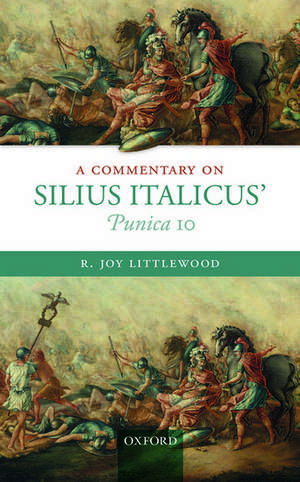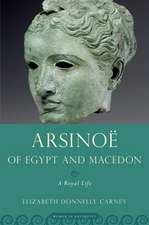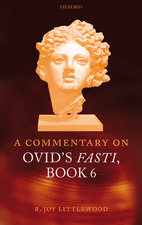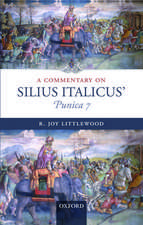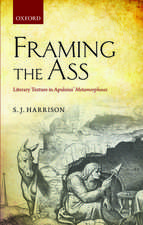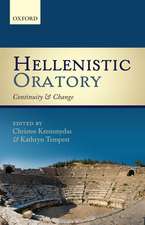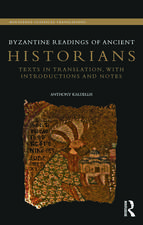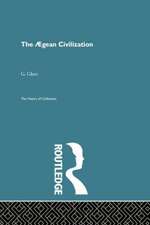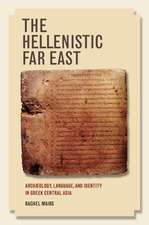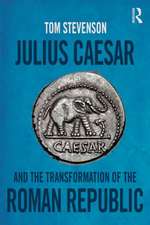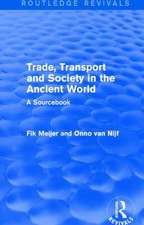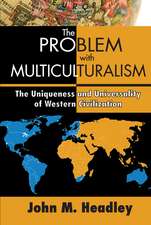A Commentary on Silius Italicus' Punica 10
Autor R. Joy Littlewooden Limba Engleză Hardback – 22 feb 2017
Preț: 657.11 lei
Preț vechi: 995.31 lei
-34% Nou
Puncte Express: 986
Preț estimativ în valută:
125.74€ • 134.46$ • 104.84£
125.74€ • 134.46$ • 104.84£
Carte tipărită la comandă
Livrare economică 07-12 aprilie
Preluare comenzi: 021 569.72.76
Specificații
ISBN-13: 9780198713814
ISBN-10: 0198713819
Pagini: 346
Ilustrații: 5 black-and-white illustrations
Dimensiuni: 143 x 223 x 26 mm
Greutate: 0.53 kg
Editura: OUP OXFORD
Colecția OUP Oxford
Locul publicării:Oxford, United Kingdom
ISBN-10: 0198713819
Pagini: 346
Ilustrații: 5 black-and-white illustrations
Dimensiuni: 143 x 223 x 26 mm
Greutate: 0.53 kg
Editura: OUP OXFORD
Colecția OUP Oxford
Locul publicării:Oxford, United Kingdom
Recenzii
Three volumes have been published - Littlewood on Punica 7 and 10, and Bernstein on 2...As befits members of a publisher's series, these two exemplary volumes share features and a general approach. Both tackle the question of how Silius turns history to epic; both are illuminating on his language, metre and style.
Littlewood's literary approach reveals a heightened appreciation of Silius Italicus as a poet and therefore surpasses the standard commentary that is devoted mainly to philological and textual issues. Littlewood's commentary on Punica 10 will be utilized by all serious scholars and students of the epic.
There is much more to say about this commentary and to appreciate in it, but I leave it to Littlewood's readers to discover that on their own. I do not doubt that they will be pleased with what they read and will hope that Littlewood considers writing yet another commentary on the Punica.
Littlewood's literary approach reveals a heightened appreciation of Silius Italicus as a poet and therefore surpasses the standard commentary that is devoted mainly to philological and textual issues. Littlewood's commentary on Punica 10 will be utilized by all serious scholars and students of the epic.
There is much more to say about this commentary and to appreciate in it, but I leave it to Littlewood's readers to discover that on their own. I do not doubt that they will be pleased with what they read and will hope that Littlewood considers writing yet another commentary on the Punica.
Notă biografică
Dr R. Joy Littlewood is an independent scholar based in Oxford, where she has been a member of the Centre for the Study of Greek and Roman Antiquity at Corpus Christi College for the last decade. Her early research in the late 1970s led to three pioneering articles on Ovid's Fasti followed by a commentary on Ovid's Fasti, Book 6 (Oxford University Press, 2006), which formed a major part of a doctorate by published work, awarded in 2007. Since then she has worked almost exclusively on Flavian epic, publishing a commentary on Silius Italicus' Punica 7 in 2011 with OUP and recently beginning another on Punica 3 alongside Antony Augoustakis. Among various other current projects, she has also undertaken to complete the fourth and final volume of Jim McKeown's monumental commentary on Ovid's Amores.
